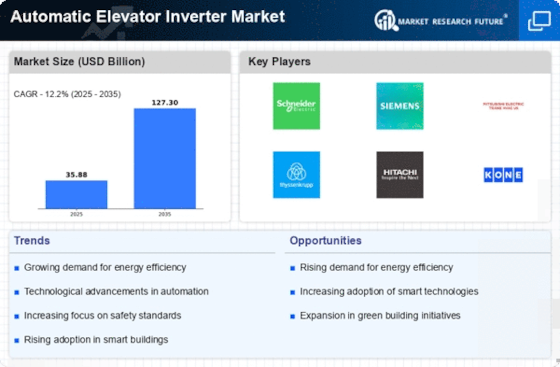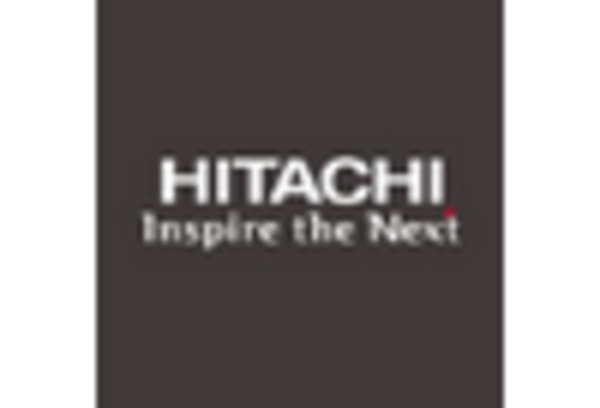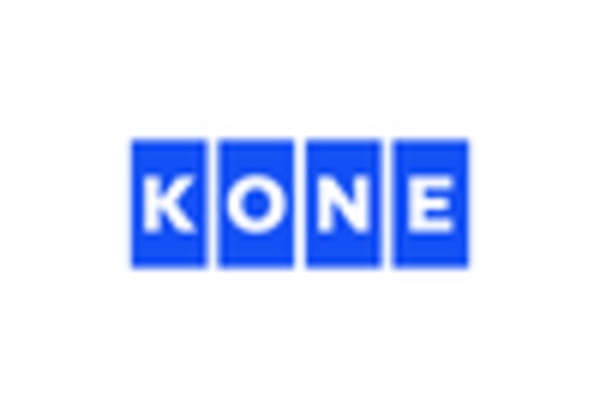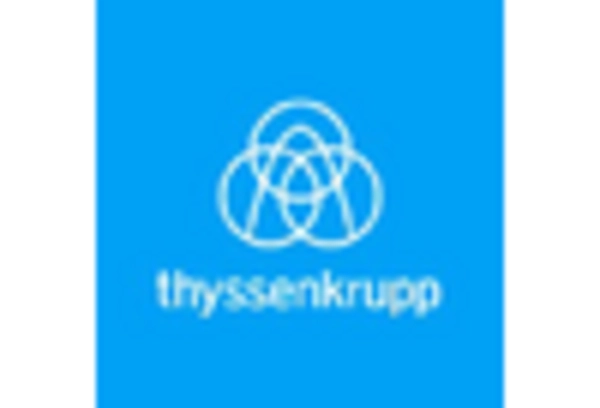Market Trends
Key Emerging Trends in the Automatic Elevator Inverter Market
The trends in the Automatic Elevator Inverter Market are notable due to opportunities that come with technological innovation and urbanisation, as there are needs for innovatively intelligent systems. The various emerging trends that are affecting this market include the growing popularity of automatic elevator inverters. In case of multi-storey buildings running into several stories, modernizing the old elevators to smart system seems to be the right option and decision. Significance of automatic elevator inverters cannot be overestimated, because they are very important for the speed, acceleration, and deceleration equipment of elevators that are involved in several works such as determining the quality of ride or improving it. Apart from that, energy efficiency forms one of the major trends for the Automatic Elevator Inverter Market. With the increase attention towards sustainability and environmental conservation, manufacturers produce inverters that ensure energy.
By controlling the speed of motor operation depending on actual demand, VFDs and other energy efficient algorithms put into automatic elevator inverters become more efficient at reducing unnecessary consumption during hours that are spent largely idle. This is in line with world trends for smarter and friendlier urban infrastructure more sustainable from ecological energy standpoint. Moreover, the market for these elevators is de-walking gradually to intelligent and networked elevator systems. The IoT connectivity and data analytics capabilities, as central units, are being incorporated in the automatic elevator inverters. This makes it possible to monitor elevator performance in real time, perform empirical maintenance and carry out the diagnostics from remote areas. The combination of these factors not only strengthens lift systems in terms of reliability but ensures normal maintenance use what boosts the user’s experiences. In addition, the Automatic Elevator Inverter Market is pursuing building space reduction because of an increasing demand for minimizing it.
The new solutions in elevators and planning segment are targeted at dealing with the ever-increasing urban densities as spaces become congested. To this end, automatic elevator inverters are created to work for local and compact enclosed systems as they could permit the installation of elevators into those buildings which lack proper place. This development greatly influences high-paced and densely populated urban settings where space utilization is an important factor to be considered. In terms of safety, the market is seeing innovations in automatic elevator inverters ensuring the safety of passenger and higher-level system reliability. Mach to match advanced control algorithms and safety features are being installed in the inverters to make a smooth ride for properties. The components include emergency brake shutdown, anti-jam protection, and accurate control floor position. Manufacturers give a lot of attention to their products following certain safety standards and regulations, which help the manufacturers to offer more secure models of elevators for large buildings that depend on the internal elevator system.

















Leave a Comment